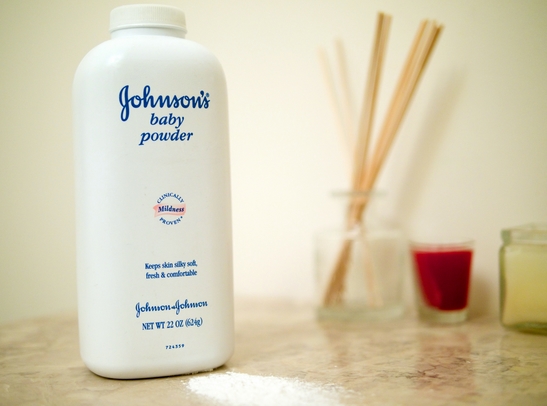Diet rich in polyphenols can boost brain function and mood
10/21/2022 / By Zoey Sky

Research shows that eating the right kinds of food can help address depression and improve brain function. In fact, some foods do this better than any medication.
What you need is to eat foods that are high in beneficial compounds called polyphenols.
Polyphenols are found in plant foods and can help reduce oxidative stress while improving “synaptic plasticity.” This can make you mentally sharper and even helps promote a good mood.
Chronic negative emotional states and poor brain function can result in more serious neurodegenerative diseases. Polyphenols can help address those issues.
According to a 2021 study published in the journal Molecules, polyphenols can help fight psychiatric disorders and improve cognitive performance. This means that eating the right kinds of food can help clear your mind and make you feel better.
A balanced diet is crucial for healthy brain function
Instead of taking medication linked to many negative side effects, take charge of your own health by eating the right foods. After all, healthy foods do more than just improve your physical health.
According to the 2021 study, polyphenols found in parsley exert anxiolytic and antidepressant effects. Several other studies have also shown that diets that are high in fruits and vegetables can improve brain function and mood significantly.
These nutritious foods can help you:
- Feel calmer
- Feel happier
- Have more energy
- Improve mental focus
Several case studies and anecdotal evidence have proven the many brain benefits of plant foods.
For example, people who want to treat depression naturally have found that following a balanced diet rich in the correct foods may offer many health benefits.

Additionally, eliminating known mood-affecting foods like gluten and artificial ingredients are linked to a significant increase in happiness and clarity of thought. (Related: Polyphenols in acai found to have a prebiotic effect that boosts digestive health.)
Polyphenols are good for your mental health
Scientists have been looking for a link between food and the mind for a long time since food’s effect on the body has long been known.
Michael Berk, a professor of Psychiatry at Deakin University in Australia, said the results of recent studies regarding food’s connection to mental health have consistently shown a definite link.
If you want to know how to support your mental health and have better clarity of mind, eat a nutritious diet rich in polyphenols. The more of this substance a food has, the more it will help boost your mental health.
Superfoods rich in polyphenols
These superfoods are full of polyphenols that can help boost your brain health:
Beans
Beans are good for you and it’s no surprise that they are also full of polyphenols.
Black beans and white beans have the highest number of polyphenols. Black beans have 59 mg per 100 g, while white beans have 51 mg.
Berries
Different types of berries are also full of polyphenols.
These include common and accessible berries like:
- Highbush blueberries (560 mg polyphenols)
- Blackberries (260 mg polyphenols)
- Strawberries (235 mg polyphenols)
- Red raspberries (215 mg polyphenols)
Black chokeberry has more than 1,700 mg of polyphenols per 100 g.
Cloves and other seasonings
In a 2010 study that identified the 100 foods richest in polyphenols, cloves ranked number one. Cloves had a total of 15,188 mg polyphenols per 100 g.
Other seasonings with high rankings include dried peppermint, which was ranked second with 11,960 mg polyphenols, and star anise, which was third with 5,460 mg.
Cocoa powder and dark chocolate
Cocoa powder was the fourth-best superfood source of polyphenols identified, with 3,448 mg of polyphenols per 100 g.
Dark chocolate was ranked eighth with 1,664 mg.
Non-berry fruits
Berries aren’t the only fruits that are full of polyphenols. According to the American Journal of Clinical Nutrition, many fruits contain high numbers of polyphenols.
These include:
- Black currants (758 mg polyphenols)
- Plums (377 mg polyphenols)
- Sweet cherries (274 mg polyphenols)
- Apples (136 mg polyphenols)
Fruit juices like apple juice and pomegranate juice are also great sources of polyphenols.
Nuts
Nuts are high in caloric value, but they are also rich in protein and polyphenols.
According to a 2012 study, both raw and roasted nuts contain significant levels of polyphenols.
Nuts high in polyphenols include:
- Hazelnuts (495 mg polyphenols)
- Pecans (493 mg polyphenols)
- Almonds (187 mg polyphenols)
- Walnuts (28 mg polyphenols)
Vegetables
While many vegetables contain polyphenols, they usually have less than fruit.
Vegetables with high numbers of polyphenols include:
- Artichokes (260 mg polyphenols)
- Chicory (166 to 235 mg polyphenols)
- Red onions (168 mg polyphenols)
- Spinach (119 mg polyphenols)
Follow a balanced diet and eat superfoods rich in polyphenols to boost your brain health and naturally improve your mood.
Watch the video below to find out how mushrooms can boost your brain health.
This video is from the Groovy Bee channel on Brighteon.com.
More related stories:
Scientists eye blackberry polyphenols as potential cure for artery plaque buildup.
Polyphenols in plum exhibit anticancer properties.
Kudingcha polyphenols may help prevent colitis.
Sources include:
Submit a correction >>
Tagged Under:
anxiety relief, brain function, brain health, food is medicine, food science, fruits, functional food, mental health, mood, natural medicine, organics, phytonutrients, polyphenols, vegetables
This article may contain statements that reflect the opinion of the author




















